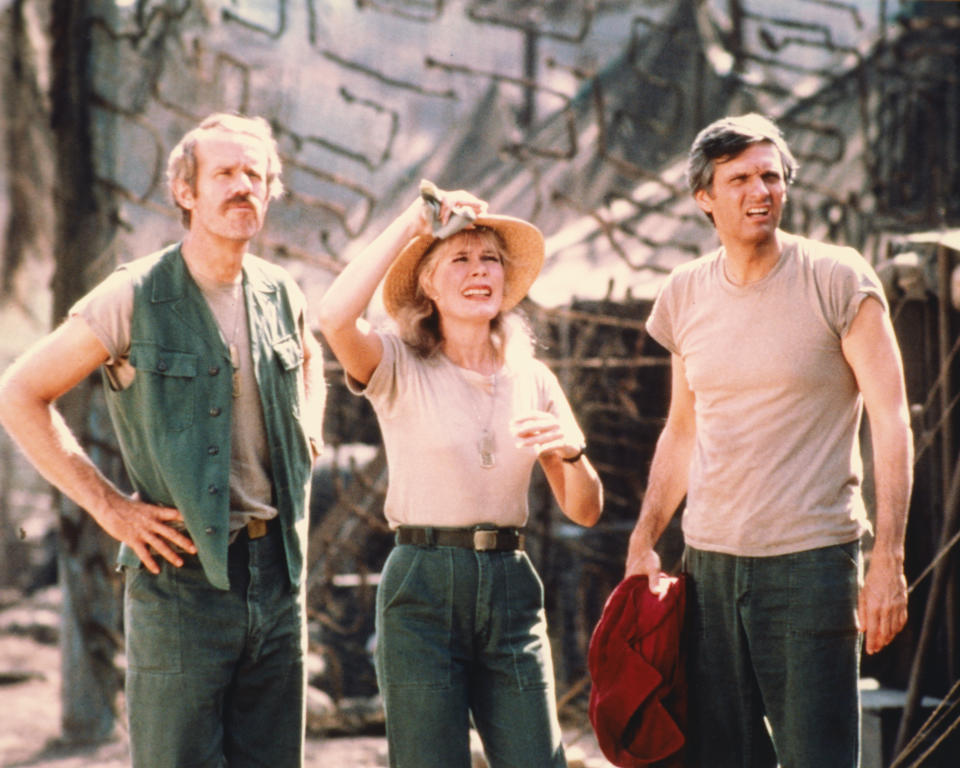Hawkeye and Hunnicutt are still going strong.
Actors Alan Alda and Mike Farrell reunited on Saturday to mark the 50th anniversary of M*A*S*H, which premiered on Sept. 17, 1972. A spinoff of Robert Altman’s 1970 film of the same name, the CBS series about medics in the Korean War ran for 11 seasons and is regarded as having one of the most viewed, and critically lauded, finales in television history.
Alda, who played Capt. Benjamin “Hawkeye” Pierce on the show, shared a photo of himself and his former co-star raising glasses of red wine in honor of “the show that changed our lives — and our brilliant pals who made it what it was.”
“MASH was a great gift to us,” Alda, 86, captioned the photo, which has received more than 387,000 likes from fans.
Mike Farrell and I today toasting the 50th anniversary of the show that changed our lives – and our brilliant pals who made it what it was. MASH was a great gift to us. pic.twitter.com/FGd8ZwBgIq
— Alan Alda (@alanalda) September 17, 2022
Though he’s best known for playing Capt. B.J. Hunnicutt on the long-running series, Farrell, now 83, didn’t actually join the cast until its fourth season. The actor joined the show as a new sidekick for Hawkeye following the departure of Wayne Rogers, who played Capt. “Trapper” John McIntyre, in 1975. After a contract dispute with producers, Rogers’s role was recast a few years later for the spinoff Trapper John, M.D. starring Pernell Roberts.
Alda, who also wrote and directed several episodes of M*A*S*H, won five Emmys during his time on the show and is the only series regular to appear in every episode from its 1972-1983 run. The actor, who revealed that he had been diagnosed with Parkinson’s disease in 2018, recently spoke to the New York Times about the show’s legacy.
“Aside from really good writing and good acting and good directing, the element that really sinks in with an audience is that, as frivolous as some of the stories are, underneath it is an awareness that real people lived through these experiences, and that we tried to respect what they went through,” Alda shared. “I think that seeps into the unconscious of the audience.”




